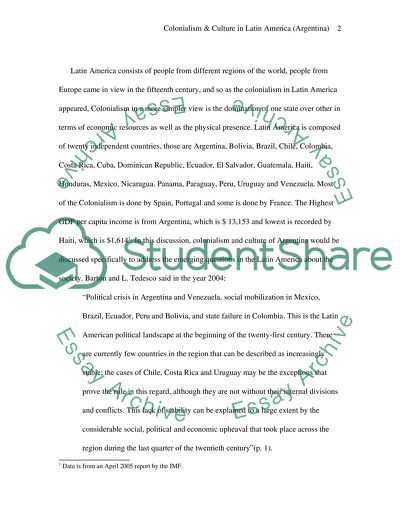Cite this document
(“Colonialism and culture in Latin America Essay Example | Topics and Well Written Essays - 2000 words”, n.d.)
Colonialism and culture in Latin America Essay Example | Topics and Well Written Essays - 2000 words. Retrieved from https://studentshare.org/miscellaneous/1528017-colonialism-and-culture-in-latin-america
Colonialism and culture in Latin America Essay Example | Topics and Well Written Essays - 2000 words. Retrieved from https://studentshare.org/miscellaneous/1528017-colonialism-and-culture-in-latin-america
(Colonialism and Culture in Latin America Essay Example | Topics and Well Written Essays - 2000 Words)
Colonialism and Culture in Latin America Essay Example | Topics and Well Written Essays - 2000 Words. https://studentshare.org/miscellaneous/1528017-colonialism-and-culture-in-latin-america.
Colonialism and Culture in Latin America Essay Example | Topics and Well Written Essays - 2000 Words. https://studentshare.org/miscellaneous/1528017-colonialism-and-culture-in-latin-america.
“Colonialism and Culture in Latin America Essay Example | Topics and Well Written Essays - 2000 Words”, n.d. https://studentshare.org/miscellaneous/1528017-colonialism-and-culture-in-latin-america.


